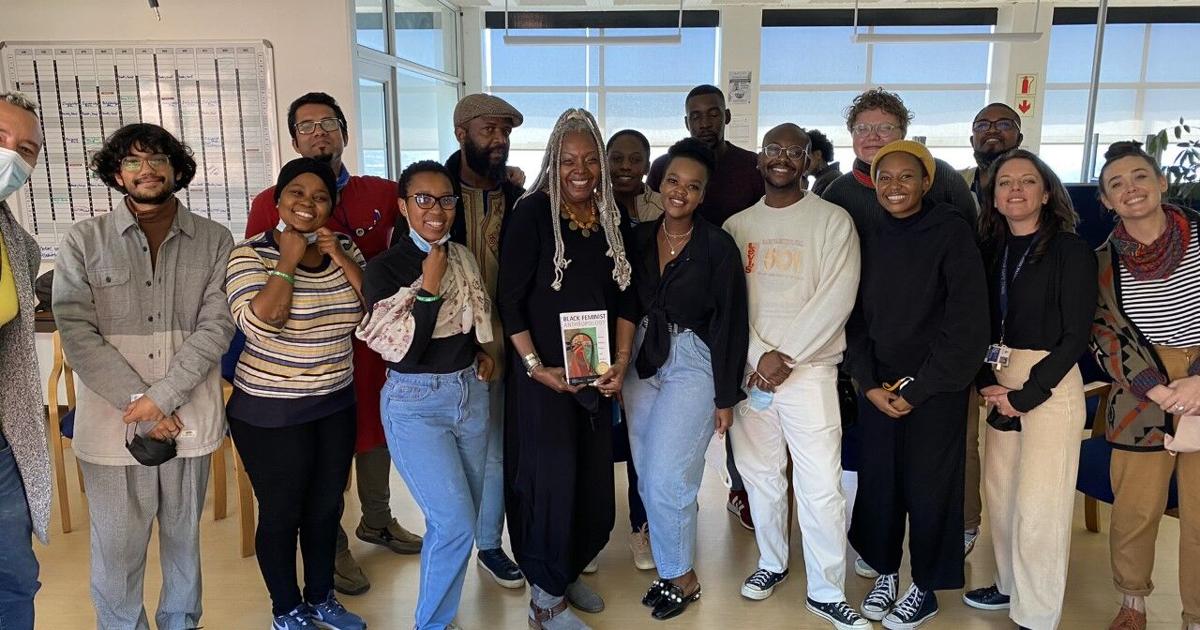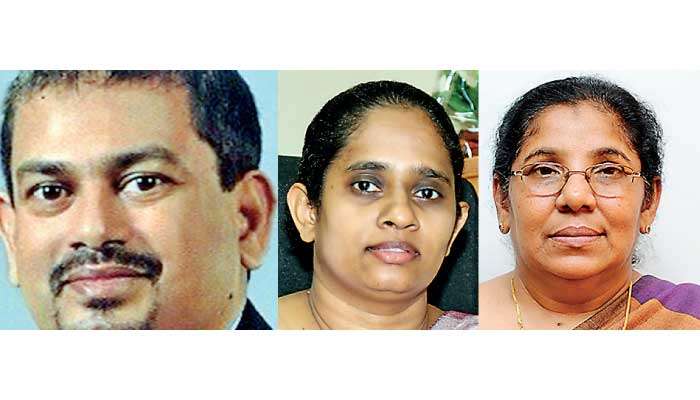Laura Tiehen, originally from Galesburg, was recently appointed to a one-year post as a senior economist on the White House Council of Economic Advisers. A longtime Washington, DC area resident, Tiehen worked in the US Department of Agriculture’s Economic Research Unit for 20 years before joining CEA, researching poverty and US food aid programs. .
She attended the Costa Catholic Academy and graduated in 1986 from Galesburg High School, where she played basketball and volleyball.
Q: Tell us about your new position on the White House Council of Economic Advisers.
Tiehen: This is a one year position as a Senior Economist. There are generally 10 to 12 senior economists at CEA, and each of us has specific areas of intervention (such as health, climate or fiscal policy). The CEA recruits senior economists from academia, other government agencies and research organizations. They posted a job offer at my agency, the US Department of Agriculture’s economic research service. The ERS Deputy Director encouraged me to apply for the position as they were looking for someone with my areas of specialization. I applied for the job, had two interviews through Zoom and was selected.
Q: What is the White House Council of Economic Advisers? What will your role be?
Tiehen: The aim of the CEA is to provide the President with an objective analysis of economic policy based on the best available research data. There are other councils that initiate and coordinate policies, and the role of the CEA is to advise the administration on the potential economic impacts of these policies and on the most economically sound policy design options. My main focus is on food aid programs like SNAP (previously called the Food Stamp Program) and policies affecting rural populations. Our offices are located in the Eisenhower Executive Office Building, just west of the White House.
Q: You were able to get to the Eisenhower Executive Office Building. How was it ? Without remote working, would this be the place where you would work on a daily basis?
Tiehen: I started the position in mid-July and worked remotely for the first seven weeks, with only two days at EEOB during that time. Walking around the EEOB for the first time was quite impressive. The ornate architectural style, the ceremonial rooms and the exhibits really make you feel surrounded by the history of our country. When I first walked past a desk with a nameplate that read “Office of the Second Gentleman” (Vice President Kamala Harris’ husband), I was struck by the fact that I have the opportunity to to experience history in the making. CEA returned to the office right after Labor Day, so I’m in the office three days a week now, but the fear definitely hasn’t gone away.
Q: So this is a one year position. Is there a chance to do it beyond a year?
Tiehen: I don’t know of anyone at my level who has done this for over a year. Senior economists are usually “on leave” from jobs in academia or some other government agency, so it would be difficult for us to stay much longer than that. There are people, however, who have made more than one stint in their career.
Q: Who will you work with on the White House Council of Economic Advisers? Will you have direct contact with President Biden or senior White House officials?
Tiehen: The President of CEA is Dr Cecilia Rouse, and she holds a Cabinet-level position in the Biden administration. There are two other board members, Jared Bernstein and Heather Boushey. The senior economists meet with Dr Rouse and the two members weekly as a group to keep abreast of the progress of our work. We also have separate meetings on specific project areas. Senior economists work most closely with senior staff in other White House offices and boards, and I don’t expect to have direct contact with senior White House officials outside of the CEA. I saw President Biden walking down the hall of the EEOB the other day, which was very exciting!
Q: What were you doing before you started with the White House Council of Economic Advisers? Will you return to this position?
Tiehen: I worked in the Economic Research Service of the United States Department of Agriculture for 20 years before I started at CEA, researching poverty and food aid programs in the United States, and will be resuming this post next year. I am fortunate to have a job that allows me to contribute to the policy development process to ensure that safety net programs like SNAP serve the people who need them in the most effective way possible.
Google Scholar Profile:Laura Tiehen
Q: What do you like / dislike about living in the DC area? We see that you are a big fan of the Nationals!
Tiehen: Oh yeah my husband Dave and I are both big fans of the Nationals so 2019 has been a great year for us. I grew up as a fan of the Cubs and still support them too. I really love living in DC There are some great museums, theaters, and restaurants, and since we live in the city, we can access almost everything without having to drive. We live close to Rock Creek Park so we have easy access to some nice trails where we can walk our dog, Maddy. People tend to think of DC as just full of politicians, but there are a lot of longtime residents and you can really build a community here. The biggest challenge for DC is that while it’s diverse, it’s also quite separate. So while the city is doing very well economically, not everyone shares this success. The most difficult thing for me personally is the swampy weather in July and August. I am always so relieved when fall arrives here.
Q: Can you tell us about your professional background? What positions have you held?
Tiehen: Well I guess my career path really started working at the Dairy Queen on North Henderson Street while in high school. It used to be a small walk-in store where you had to risk your life to line up just off the busy street. A lot of my friends used to work there and it was a very popular stop for people, so it was a really fun job. I majored in Economics and Spanish at Lake Forest College and then got a PhD. in Economics from the University of Wisconsin-Madison. I then landed the position at USDA upon graduation from graduate school and have been there ever since. I didn’t expect to have the same job for so long, but I had the opportunity to work on so many interesting projects that it never got old.
Q: Can you tell us about your family?
Tiehen: I am the youngest of seven children and have a large extended family. My husband and I chose not to have kids, but we really love being the cool aunt and uncle to our 21 nieces and nephews, although I’m not sure if they would agree to the part ” cool “.
Q: What memories do you have from your childhood in Galesburg? Are there things about growing up in Galesburg that have prepared you for your career path?
Tiehen: I was born in Galesburg and raised at 1018 North Cherry St. With such a large family, there was always something going on. Loved the summer nights when the kids were all playing ‘kick the can’ while my parents and our neighbors hung out together on our back patio. I’ve always been a bookworm too, so I remember how exciting it was when my parents first let me cycle to the Galesburg Public Library. My sister Rita and I both played volleyball and basketball, so a lot of my memories of high school center on practices, games and those long bus rides to Quincy. My husband was amazed when I told him that our biggest rival was about a two hour drive away, but I feel like that only added to the adventure. Looking back, I am very impressed with the excellent education I received in Galesburg, both Costa and GHS.
Q: Did you have any influential teachers or coaches in Galesburg?
Tiehen: Did Coach Massey ask you this question? While we weren’t as successful as some of his later teams, we still see ourselves as his true “Dream Team”. In fact, we’ve had a pretty tough senior basketball season so I learned a lot about how to persevere in the face of adversity from Coach Massey. And Coach Massey and Coach Murdock both showed how you can dedicate yourself and work hard for something while having fun doing it. My first influential teacher was Carol Mower Heath, who will always be “Miss Mower” and the “Wonder Woman” of teachers to me. I also learned a lot from the third grade teacher Mr. Panther, who used Carl Sandburg’s poem “Fog” to teach us the metaphor and encouraged us to be thoughtful and creative in many ways. When I hear that girls are discouraged from math, I am so grateful that I learned algebra and Latin from Sister Rosemary, who would have laughed at such an idea. I recently found an old ‘world religions’ worksheet from Mary Norton’s ninth grade religion class and realized how amazing it was to have a comparative religion lesson in a classroom. Catholic school. I took my first economics class from Hal Devore at GHS, and the way he blended history with economics really sparked my interest in both subjects. I learned from Larry Diemer to translate an idea into writing by breaking it down into its basics and paying attention to the details.
Q: Do you ever come back to Galesburg? Are there any “mandatory stops” on your return?
Tiehen: I love coming back to Galesburg, and our first stop for a meal is always at the Landmark. It’s a Galesburg institution, and I’m happy that Phil and his team keep the great classics but also find ways to innovate. Another favorite is the baked pizza, which comes in such creative and delicious combinations. I also really like the tortas at El Jarochito. My husband’s favorite place in town is Budde’s, which has a truly amazing beer selection, and Diane is always very good at going through the entire list with him when we’re there. They also have great pizza and a welcoming atmosphere. I was really sad that I couldn’t return to our 1986 GHS class reunion over the summer, but hope to return to Burg soon.
 Xing Wu
Xing Wu



